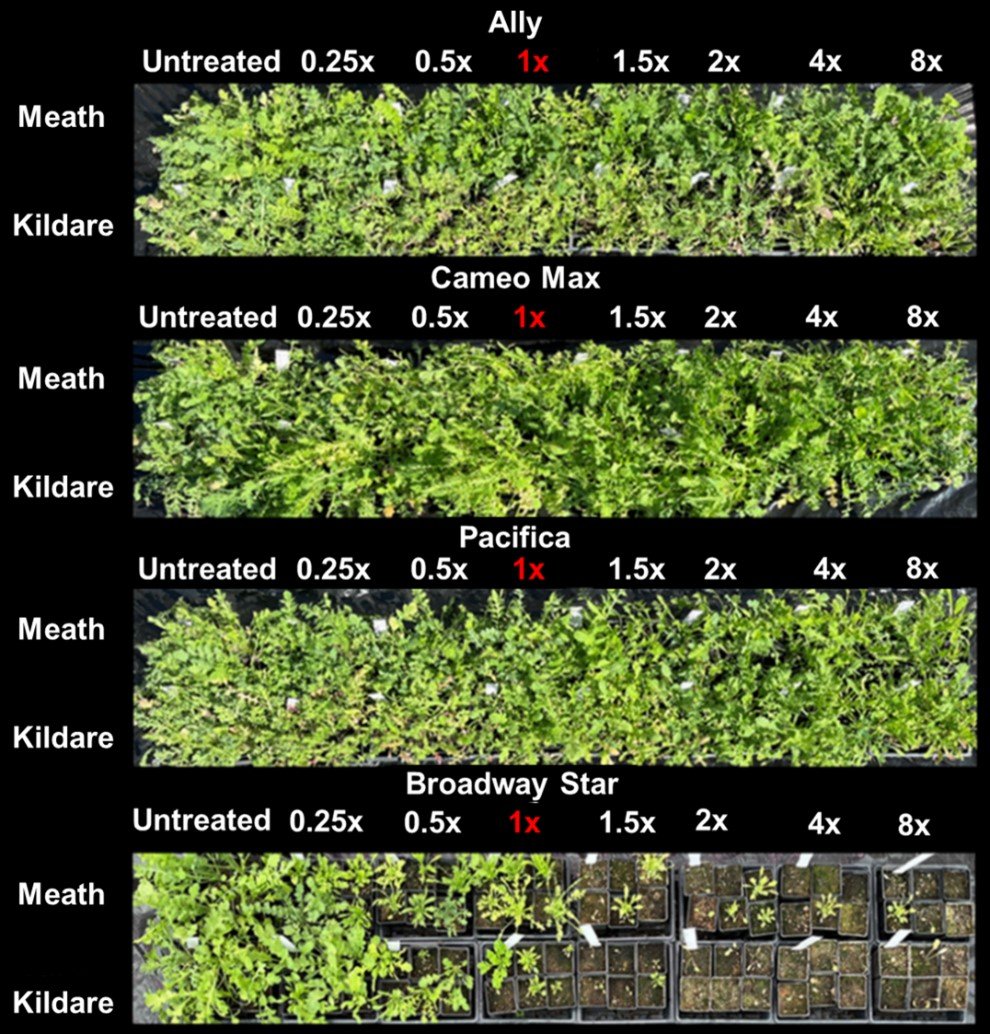
Teagasc Crop Report
Herbicide Resistance in Broad Leaf weeds
Herbicide Resistance in Broad Leaf weeds

To view the full report you must have an existing account with Teagasc ConnectEd.
Farmers sign in hereAlready have a ConnectEd account? Connected Client or Teagasc staff log in here
Herbicide resistance in broad leaf weeds
Poor control of broad leaf weeds in cereals has been evident for sometime with known herbicide resistance in Corn Marigold and Common Chickweed. These weeds are resistant to the ALS herbicides ( Ally, Cameo, Pacifica, Haromny, Calibre, etc.) with no resistance found to hormone based herbicides (Shield, Duplosan, etc.).
Work completed by Teagasc over the past two years have confirmed herbicide resistance in Corn Marigold, Common Chickweed, Common Field Speedwell and Common Poppy
General good practice for all broadleaved weeds include
- Residual herbicides (applied as pre- or early post-emergence) is the best way for managing broadleaf weeds in cereal (winter) or non-cereal break crops.
- Post-emergence herbicides can control many but not all broadleaved species.
- Find the best product or product combination for your target weed populations (based on your field history).
- Match the product rate with the target weed size, as different products have different recommendations.
- There is more detailed information on products, rates and weed susceptibility in the Crop Report
- Avoid using ALS products (eg. Ally Max, Cameo Max, etc.) on their own due to resistance-risk
- Use ALS with a hormone partner either as a pre-mix (eg. Zypar, Starane, Galaxy) or as a tank mix (eg. Ally Max plus Hurler)
- Use hormone type products (eg. Hurler, Duplosan, Dowshield)
- If you suspect poor weed control, collect and send seed samples (https://bit.ly/3MrlcgR) for testing.
See the next sections for details of herbicide resistance in Corn Marigold, Common Chickweed, Common Field Speedwell and Common Poppy